Stockies 2015
I have taken my saw and hacked off the end of the previous post, and performed other grievous surgery, because I wanted to talk about the British Fantasy Holdstock Award 2015 in more detail. As noted, I've actually read the shortlist this year — mostly by apparently being psychic when picking reading material last/this year.
The Holdstock Award is for best fantasy novel (as opposed to horror novels which have their own creepy haunted house elsewhere.) So here is my original rundown of the field:
I have already written about Frances Hardinge's (see above for praise) Cuckoo Song, KT Davies' Breed and Robert Jackson Bennett's City of Stairs, all of which are worthy candidates.
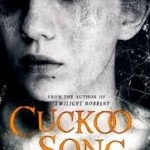
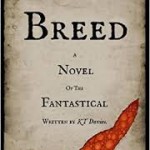
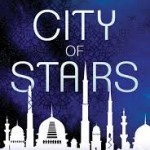 Also up are Neil Williamson's The Moon King, which is a city-set fantasy that shares some features of the Bennett, but goes further into Weird territory — an impossible city with shameful secrets buried beneath it, civil unrest and metaphysical threat. Ed Cox's The Relic Guild (the sequel to which, the gorgeously titled Cathedral of Known Things has, I think, just been released) is another angle on the same set up, falling more on the side of a traditional fantasy narrative compared to the other two — in this case the city is way more impossible, and the dark past far more of a clear and present danger.
Also up are Neil Williamson's The Moon King, which is a city-set fantasy that shares some features of the Bennett, but goes further into Weird territory — an impossible city with shameful secrets buried beneath it, civil unrest and metaphysical threat. Ed Cox's The Relic Guild (the sequel to which, the gorgeously titled Cathedral of Known Things has, I think, just been released) is another angle on the same set up, falling more on the side of a traditional fantasy narrative compared to the other two — in this case the city is way more impossible, and the dark past far more of a clear and present danger.
Last of all is Lavie Tidhar's A Man Lies Dreaming. I've praised his Violent Century before, and enjoyed his Osama before that, and this work is more of Tidhar's strong stuff — a historical narrative, an alternate reality, a meditation on the Holocaust. Partly the story is the of a Jewish pulp writer in the camps at Auschwitz; partly it an alternate timeline where the Communists defeated the Nazis in the early 30s and Hitler ends up as a seedy private eye in a London where Mosley is riding to power on a wave of anti-immigrant hysteria. The latter story may be no more than the dream of the former, but that robs neither of their fascinating power.
A little more in-depth analysis now, to the extent that I'm temperamentally capable of giving it. Interestingly there are four of the six I'd count somewhere within the traditional fantasy bounds, and a couple of definite outliers. Cuckoo Song is the only explicit YA book of the set — Hardinge is one of the best authors I know, adult or YA, and it tells a very weird, creepy story that is about fairies and making bad deals, with a very nice period setting to boot. What it really investigates, though, is identity and alienation, especially from a child's point of view, and frankly it would have been a good fit for the horror list had the judges decided to take things that way. Hardinge is, here as always, a writer whose elegant use of language is perfectly matched by her capacious imagination. It is also the only novel on the list that comes close to the "urban fantasy" end of things — i.e. a novel set in a real world (though a period one) underpinned by hidden supernatural goings on. Last year the shortlist was strongly dominated by urban fantasy — Newman, Pollack and Gaiman amongst them, so it's an interesting shift either in taste or in available material. Of course that's only one definition of urban fantasy (though the definition that has "won", if that declaration means anything) — because most of the rest are cityscapes of one sort or another.
The other outlier is the Tidhar, an author who has worked very hard at hacking his own path through the brush for some time. Osama and Violent Century were both thought-provoking and very different books, and Dreaming is another. It's very much "weird fiction" with Tidhar's trademark grasp of 20th century history and politics thrown in, and it's honestly hard to talk about it without getting very far down the rabbit hole (and spoiling it for the reader). I appreciate that talking about the worldbuilding of the alternate history is to stray massively from the point of the book, but it is absorbing in and of itself — plenty of alt histories take the "What if Hitler had won?" line. I've personally never come across one that follows the idea of what would happen if Hitler had never come into power at all. The logic plays out very plausibly, often horribly, and often very explicitly. Nice safe cover, contents definitely NSFW…
Davies's Breed is, I think, the book I had the most fun reading, and as a light-hearted roguelike fantasy (1) I'm overjoyed that it's been recognised as an extremely well put together work of fiction — books of more comic tone are often pushed to the back when the awards train comes around, in favour of the sombre and the literary. Breed is a splendid fantasy picaresque that doesn't cut corners with its characters or its world, and also addresses serious issues like racism and historical revisionism without losing its shine at any time (it's a hard comparison to make, but that was always Sir Terry's great strength and it's nice to see the art remains in play).
Breed is (unusually for a roguelike) a fantasy of traditional structure, starting in a city but then progressing from place to place as the hapless (and ungendered) protagonist fights, sneaks, tricks and brags zer way into and out of trouble. The second half of the list, however, are all city fantasies (which I used to call urban fantasies but apparently they're not, they're just fantasies that are urban). Trad fantasy has generally been rural and travellogue-based — Conan and Frodo and Elric are all shiftless vagabonds, really, and Belgarion and the Shannarians and the like follow in those footsteps. Yes there was Lankhmar, but Fafhrd and the Mouser were out and about as often as they were staying at home. A travelling story is convenient because fantasy heroes can generally be tracked by the trail of corpses and breakages they leave. If your heroes are stuck in a city, then they have to live with the consequences of their actions in a much more immediate way — leading to potentially richer and more convoluted plots. Mary Gentle was ahead of the curve with Rates and Gargoyles, and Mieville, of course, was an early adopter , and since then there have been a great many others (Polansky, Lynch, Whates, Vandermeer etc.).
The three up for the award are an interesting cross-section of this sort of work, because there's definitely a realism continuüm at work. All three books feature cities with fantastic elements, but there's a distinct difference between the physical, lived-in city of Relic Guild, which has a crazy (and supremely dangerous) setting, but where real people live physical lives, and magic is something that is done by people, compared to the city in The Moon King which has a definite KJ Bishop (Etched City — one of my all time favourites) or Harrison (Viriconium) looseness of reality. We know what is real, in Cox's book, even if that reality is terrifying. In the Williamson, reality itself is often more slippery when grasped. And City of Stairs is a little from columns A and B, for the world outside the city has been rigidly pinned down, but the more we discover about how things used to be, the less we (and the protagonists) realise we actually know or understand. The lost gods of Bulikov are simply so vast and so inhuman that nothing around them remains amenable to hard definitions.
And I'm not going to call it. It's a strong shortlist, although I'm saying that as someone whose tastes are very obviously being catered for. I look forward to Fantasycon this weekend when the verdict will be given.
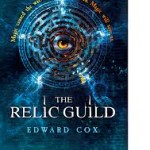
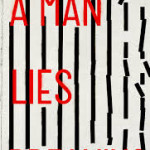 (1) meaning a fantasy starring a rogue, not a fantasy where everyone dies in three pages because they run out of food or are straight up murdered by a chicken.
(1) meaning a fantasy starring a rogue, not a fantasy where everyone dies in three pages because they run out of food or are straight up murdered by a chicken.
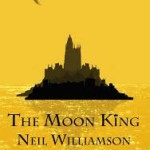
 © 2008-2025 Pan Macmillan
© 2008-2025 Pan Macmillan
What can I say? I'm a sucker for alternate history books with Hitler in them. eBook bought!